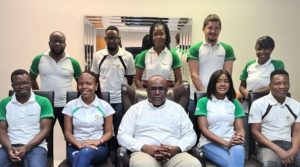
NamPower recently migrated all its operations from its existing SAP ECC system to the next-generation SAP S/4 HANA business suite as part of its Integrated Strategic Business Plan to transform into an intelligent enterprise within the medium term.
The utility’s Integrated Strategic Business Plan for 2020 to 2025 sets an ambitious goal to focus on technological advances in its product offering to meet the future demands and expectations of both customers and employees.
SAP is the German business suite product offering so-called wall-to-wall financial and management solutions for large to very large enterprises. NamPower has been running on a SAP backbone for nearly two decades.
Announcing the migration, NamPower said in a statement the new S/4HANA platform offers a host of benefits such as embedded real-time analytics, an intelligent and powerful user experience across all devices with SAP Fiori, faster response times and better performance with the SAP HANA database.
With SAP S/4HANA, NamPower can now adopt new technologies such as Machine Learning, robotics, and the Internet of Things (IoT) in its business processes.
It is hoped that the implementation of S/4HANA will increase productivity through the improvement and automation of business processes. NamPower said although it is common practice to outsource major changes to Enterprise Resource Planning systems due to the high level of complexity, it has broken new ground by being the first local company to do so with its own SAP-certified team. Not only did this save Nampower about N$8 million in consultancy fees, it also attracted the attention of SAP itself who rewarded the accomplishment with a nomination at this year’s SAP Africa Quality Awards for Customer Success.
The team comprises experts in various SAP functionalities such as SAP Basis, Asset Management, SAP Multichannel Foundation, Product Lifecycle and Engineering, Finance Operations, Human Resources and Payroll, Sourcing and Procurement, and SAP FIORI Launchpad.
Project implementation took about 10 months with the go-live event carried out on the weekend of 16 to 18 October 2021.
This article first appeared on The Economist Namibia.



